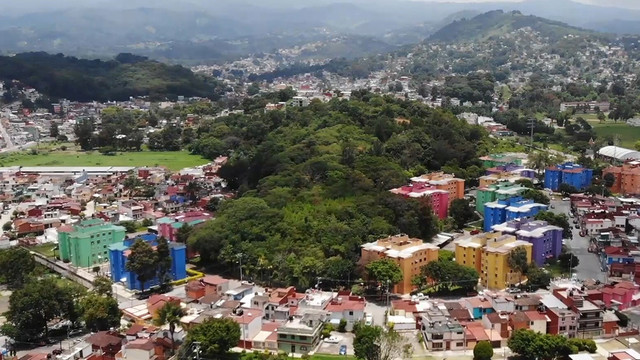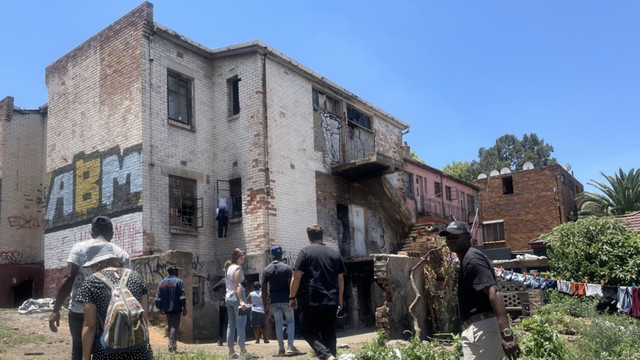Citizen participation in planning: from the neighbourhood to the city
This event on Wednesday, 24 November reflected on the needs and challenges of citizen participation in the planning and development of informal settlements.

Under government plans for informal settlement upgrading, houses are being demolished to clear space for road widening and urban infrastructure development within Soweto East village of Kibera, the largest informal settlement in Nairobi, Kenya (Photo: Victoria Hickman via Flickr, CC BY-NC-ND 2.0)
Globally, over one billion people live in informal settlements, often with limited infrastructure and access to essential services. When efforts to shape these areas arise, residents are often left out of the planning processes.
This online event explored the need for participation of residents in planning and why the capacity to go to scale is essential to successful development initiatives.
The need for citizen participation in local planning processes has long been recognised. Such involvement is essential for both equitable democratic citizenship and for effective interventions that respond to everyday lived realities.
Participatory planning and development is particularly significant for the residents of informal settlements, who are generally among the lowest-income and most disadvantaged urban citizens. Faced with considerable state neglect, neighbourhood organisations, social movements and NGOs are consolidating alliances and federations to reclaim the capacity to modify their living environments as a collective right.
However, considerable challenges remain.
To coincide with the publication of the latest issue of Environment & Urbanization (E&U), this IIED Debates event brought together E&U contributors to discuss citizen participation in local planning processes. Through exploring findings from research conducted in Bangladesh, Cuba, Serbia, Mexico and Brazil, participants learned why scaling has been so difficult and how it might be advanced.
Our expert panel explored what recent experiences add to our understanding about how and in what form participation can scale upwards and outwards:
- What is the relationship of participation to democracy and political inclusion?
- What are the key challenges that remain in terms of participatory practices?
- How can we address past deficiencies and secure more accountable processes and knowledge democracy?
About the speakers
- Diana Mitlin (moderator) is professor of global urbanism in the Global Development Institute at the University of Manchester and also a senior associate at IIED
- Vanesa Castán Broto is professor of climate urbanism at the Urban Institute in the University of Sheffield
- Sally Cawood is a global challenges fellow/research-teaching associate at the Department of Urban Studies and Planning, University of Sheffield
- Catalina Ortiz is associate professor and co-programme leader of the MSc building and urban design in Development at University College London
- Zlata Vuksanović-Macura is a senior research associate at the Geographical Institute “Jovan Cvijić” of the Serbian Academy of Sciences and Arts
- Taru Silvonen is a postdoctoral researcher based at the Health Protection Research Unit at the University of Bristol
- Ana Paula Pimentel Walker is an assistant professor in urban and regional planning at the University of Michigan’s Taubman College of Architecture and Urban Planning
- Beatrice De Carli is a reader in urbanism at the School of Art, Architecture and Design at the London Metropolitan University and deputy director of the Centre for Urban and Built Ecologies (CUBE)
Event coverage
A recording of the event is available below or on IIED's YouTube channel, where you can also find links to take you straight to the contributions of each of the key speakers.
An interview with the members of the panel from the event on citizen participation in planning is also available.
About E&U
Environment & Urbanization (E&U) is one of the most widely read and distributed journals in its field. Since first launching in 1989, E&U has been publishing two issues a year, providing researchers, NGO staff and professionals a platform to write about their work, present their ideas and debate on issues.
About IIED Debates
This event was part of the IIED Debates series. Through the convening of expert speakers and external stakeholders, IIED brings together an international community to discuss critical issues.
IIED Debates encompass both physical and digital events, including critical themes, breakfast debriefs and webinars. These events are public and are hosted regularly throughout the year online and when possible in our London and Edinburgh offices.
IIED events newsletter
Sign up to our mailing list for updates and invitations to events throughout the year, including webinars, critical themes and debriefs.
Contact
Juliette Tunstall (juliette.tunstall@iied.org), IIED's internal engagement and external events office



